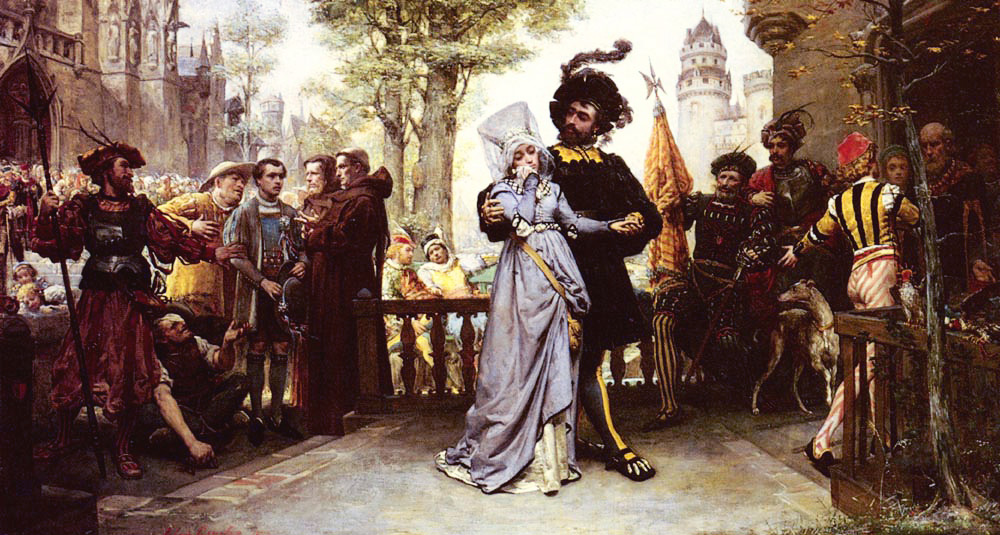In today's daf, the Talmud is discussing the provisions that an absent husband must legally provide for his wife, at least until his return home. Wine is not to be provided - unless the woman is used to drinking it (רגילה שאני). In this case, she may be given a single cup of wine, even though her husband is not at home. And then comes this teaching:
תנא: כוס אחד יפה לאשה, שנים ניוול הוא, שלשה תובעת בפה, ארבעה אפילו חמור תובעת בשוק ואינה מקפדת
One cup of wine is good for a woman; two is a disgrace; if she drinks three cups of wine she will verbally demand marital relations. And after four cups of wine a woman will solicit even a donkey in the marketplace, and she could not care...
The Effects of Alcohol on Sexual Desire
The pharmacological effects of alcohol have been extremely well studied. Although in popular culture alcohol is thought to be a sexual stimulant, its physiological effects actually reduce sexual arousal. Alcohol also causes disinhibition, making those who have been drinking more likely to engage both in sex, and in sexual risk-taking. Alcohol has depressant effects and caused its disinhibition in all the animals models in which it has been tested, including, most recently, the nematode, c. elegans. It is these effects that the Talmud is referencing here, in so far as they effect only women. (Men's sexual desire and sexual performance is also affected by alcohol, but since this is not the subject of the discussion in the daf, we won't go there.)
“...alcohol specifically disinhibited these behaviors [locomotion, feeding and escape] in worms...”
Too Drunk To Say No
The Talmud describes an effect of too much alcohol: it causes such a degree of sexual disinhibition that an intoxicated women looses all sense of propriety. In fact, she gets so drunk that she is prepared to commit bestiality. In the United Kingdom three high profile court cases (the Dougal case-November 2005, the Hagan case-November 2006, and the Bree case-December 2006) illustrated the talmudic supposition in today's daf. In all cases the women who were raped were heavily intoxicated and the defendants, who admitted having had sexual intercourse but denied rape, were acquitted. If a woman is drunk, her no doesn't mean NO.
Writing in the Stanford Law Review, Karen Kramer outlined ways which cultural myths surrounding alcohol and the place of men and women in society converge to produce a double standard. If the rapist was drunk, it reduces his culpability; if the victim was drunk, it increases her culpability.
Expectancy beliefs about alcohol - which include the beliefs that alcohol increases sexual arousal, loosens women's sexual inhibitions and increases men's feelings of power and dominance - interact with traditional notions of male aggressiveness and female submission to set the stage for acquaintance rape. When a woman is visibly intoxicated a man may interpret friendly or flirtatious behavior an invitation to have sex. Believing that alcohol reduces a women's inhibitions, the man may read her behavior as a demonstration of her true but disguised desire for sexual activity. Even if she fails to become physically affectionate, since alcohol is a depressant, the woman may be less able to resist unwanted sexual advances. Her lack of resistance may sound like a resounding "yes" to a man who subscribes to the tradition model of male aggression and female submission. Moreover if the man is drinking as well, he may feel safe disregarding her will,because he knows that he can blame his aggressionon the alcohol. This is not to say that any sexual interaction between intoxicated individuals constitutes rape, but drinking does enable a man to overpower an unwilling woman while feeling confident that he can blame his own actions on the alcohol.
Over twenty years ago, the journalist Helen Benedict in her book Virgin or Vamp described the myth of our culture in which women who drink too much are "asking for it." I had no idea that the myth could also be found embedded in our Talmud.







